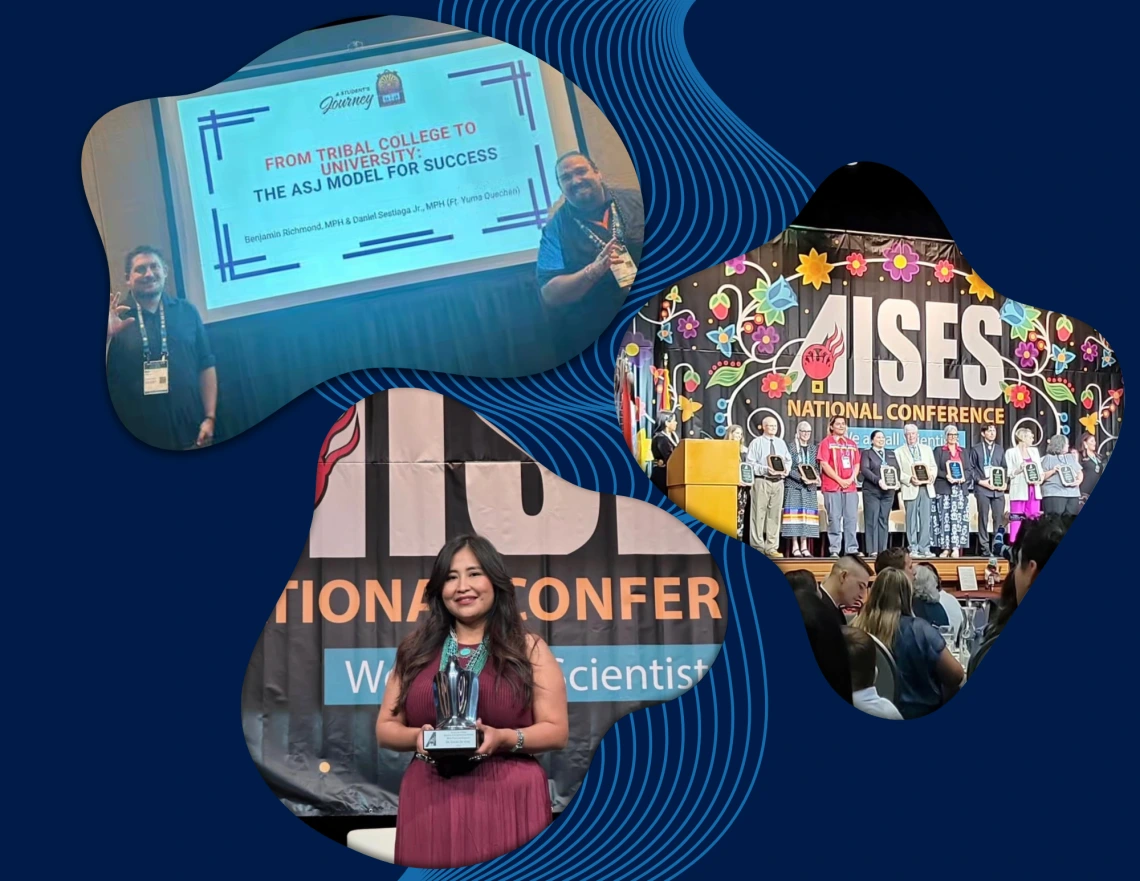We Are All Scientists: Reflections from the 2025 AISES National Conference

I had the privilege of representing the Indigenous Resilience Center at the American Indian Science and Engineering Society National Conference in Minneapolis, Minnesota. The event brought together Indigenous students, educators, professionals, and community members from across the country. Carried a message that science is not limited to formal institutions but is something Native peoples have always practiced through observation, relationship, and stewardship of the natural world.
Throughout the week, I was inspired by the atmosphere of collaboration and commitment to Native scientists. This gathering continues to create a space where students could showcase their work, connect with mentors, and gain confidence in seeing themselves as scientists and innovators. It reminded me how powerful it is when Indigenous knowledge systems and Western science come together to address the challenges our communities face.
I also had the opportunity to co-present with Ben Richmond and Mayra Vargas on the A Student’s Journey program, which focuses on building smoother pathways for Native students as they transition from tribal colleges to universities. Our presentation explored how mentorship, partnership, and culturally grounded approaches can strengthen these pathways and help students feel supported throughout their academic and professional journeys. The conversations that followed showed how much interest there is across institutions in learning from this model and applying it to their own programs.
Another highlight of the week was a luncheon hosted in collaboration with the Native FEWS Alliance. The gathering brought together colleagues, university representatives, and community partners who share a commitment to expanding opportunities for Native American students in STEM. It was a valuable space for exchanging ideas and reaffirming that the most effective programs are those built on collaboration, accountability, and respect for community priorities.
And finally, the University of Arizona was heavily represented throughout the conference. I was extremely proud to see Nieves Vazquez, a recent graduate student, recognized for her exceptional poster presentation, and Dr. Cherie De Vore, Assistant Professor of Chemical and Environmental Engineering and core faculty member of the Indigenous Resilience Center, honored with the AISES Most Promising Engineer and Scientist Award. Their accomplishments reflect the excellence and leadership that continue to grow within Indigenous research at the University of Arizona. You can read more about their achievements and other University highlights in the Haury Program’s feature article.
